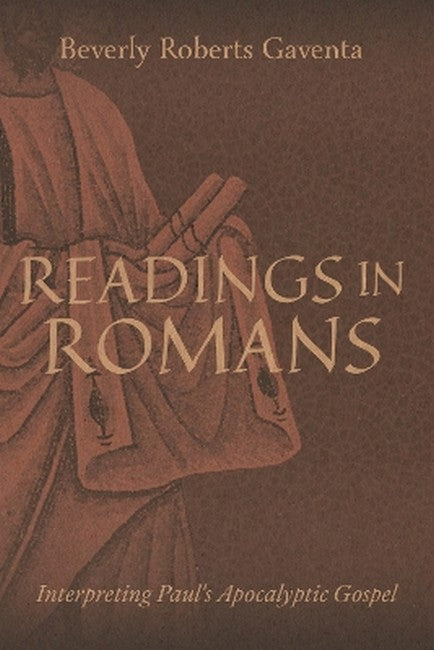Beverly Roberts Gaventa is Emerita Professor of New Testament at Princeton Theological Seminary.
Request Academic Copy
Please copy the ISBN for submitting review copy form
Description
Part 1 Proclamation, Power, and Praise 1 "To Preach the Gospel": Romans 1:15 and the Purposes of Romans 2 The "Glory of God" in Paul's Letter to the Romans 3 Power and Kenosis in Paul's Letter to the Romans 4 From Toxic Speech to the Redemption of Doxology in Paul's Letter to the Romans Part 2 The Human, the Cosmos, and the Powers 5 The Shape of the "I": The Psalter, the Gospel, and the Speaker in Romans 7 6 Neither Height nor Depth: Discerning the Cosmology of Romans 7 Interpreting the Death of Jesus Apocalyptically Part 3 God, Israel, and the Gentiles 8 On the Calling--into--Being of Israel: Romans 9:6-29 9 Thinking from Christ to Israel: Romans 9-11 in Apocalyptic Context 10 Questions about Nomos, Answers about Christos: Romans 10:4 in Context 11 Who Is "Israel" in Romans 9:30-10:21?: A Neglected Question Part 4 Romans in Conversation 12 Where Is the "God of Israel" in Paul's Reading of the Gospel? 13 Reading Romans on the Brink: The Continuing Challenge of Barth's Roemerbrief 14 "That Grace Should Come into Its Own": Romans 12:1-8 in and with Karl Barth's Roemerbrief 15 Which Humans? What Response?: A Reflection on Pauline Theology 16 Reading Romans 13 with Simone Weil: Toward a More Generous Hermeneutic 17 Reading for the Subject: The Paradox of Power in Romans 14:1-15:6 Part 5 Divine Power and Its Consequences 18 Freedom in Apocalyptic Perspective: A Reflection on Paul's Letter to the Romans 19 The Rhetoric of Violence and the God of Peace in Paul's Letter to the Romans 20 Places of Power in Paul's Letter to the Romans

